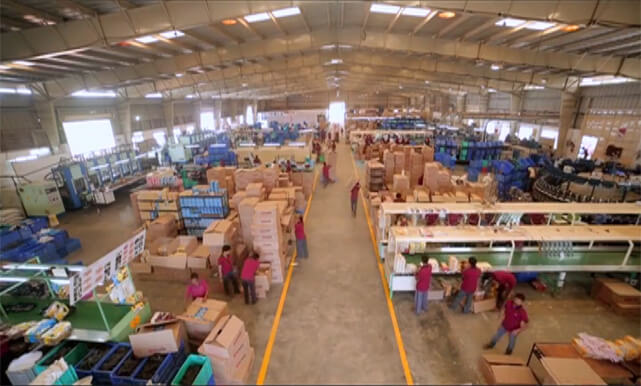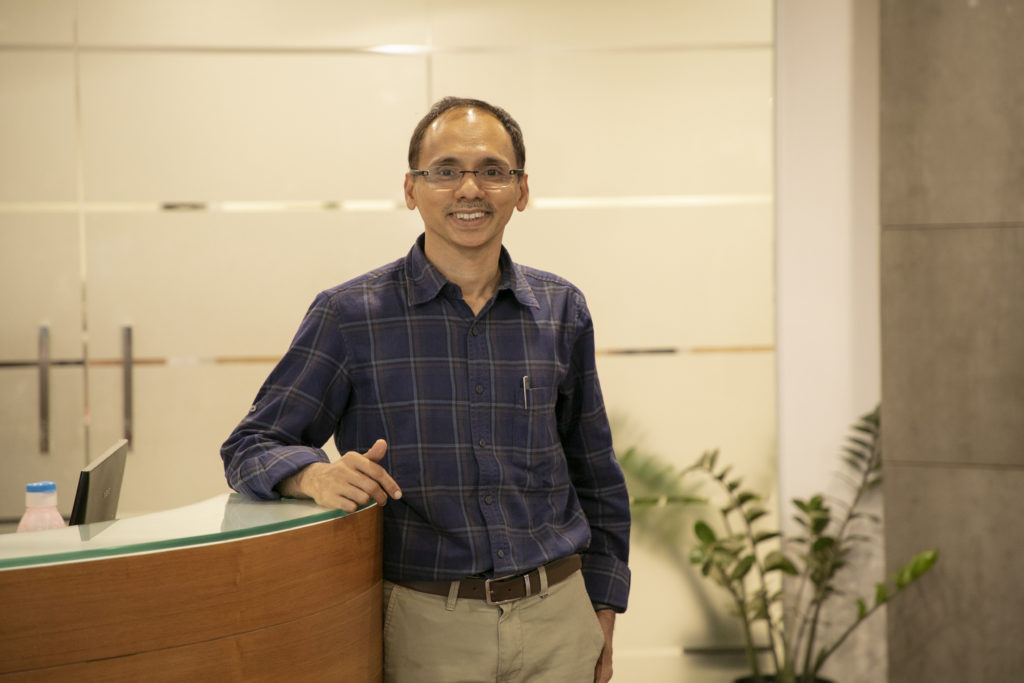



Product innovation, technology and customer focus form the core of non-leather footwear: An interview with Mr V K C Noushad, Managing Director, VKC Group
The non-leather footwear industry has huge potential in local markets and it has to move along with customer needs. At VKC Group, right product, at the right time, with right price have created the global customer base. In this interview, Mr V K C Noushad, MD, VKC Group, shares the importance of keeping pace with customer choices by adopting latest technologies. Let’s know more about how VKC has become a preferred brand serving the community at large through continuous product innovation and competitive pricing.
The initial days of VKC Footwear
VKC was started by my father Mr. V K C Mammed Koya, with the sole purpose of making footwear that is durable, comfortable and affordable by common people. He valued working class requirements and came up with innovative strategies to fulfill their footwear needs.
The story of VKC is largely based on high quality Hawai slippers manufactured in Kerala but made popular across many states in India and abroad by the customers. Let me take you back to the initial days of VKC. As the rubber industry was picking up, the Hawai footwear industry also started gaining ground. So, my father studied the market and decided to shift his business to making slippers. But there were some pain points when you observed closely. In Hawai slippers, the strap would tear off before the sole wears out. And for those who kick-start scooter, it would break, creating a crack in the sole. With attention to such minute details, my father took up many trials at Rubber Institute in Kottayam to get the right quality of rubber sheets.
Product innovation, marketing and customer satisfaction
We introduced more colour combinations and innovative packaging in multi-coloured printed poly bags, catering mostly to local market in and around Calicut. Migrant workers from Tamil Nadu, took the product to their hometowns and that’s how our markets expanded. Then, people from Bangalore and other places popularized our products. Our customers became our brand ambassadors! Today, we have factories in 10 states in India and a joint venture in Bangladesh. When people travel, they carry the product then we get enquiries from those places. We export to Gulf countries, Malaysia, Singapore and Africa.
When I was in high school my father used to come to me with a Rubber Technology handbook and ask me questions and I used to explain some concepts. That’s how I got initiated into Rubber Technology and Chemical Engineering and continued with my higher studies and research in this area. I noticed that the trend is changing from rubber to PVC and I started PVC footwear. At that point, PU footwear was coming from Thailand and few Indian manufacturers were also selling here, but at higher prices. We introduced it for the first time in Kerala and the response was great! We started using latest technologies like micro-cellular polymer footwear, with latest machines and air injected PVC synthetic leather first in south India.
 Educating the industry members and building an ecosystem in non-leather footwear
Educating the industry members and building an ecosystem in non-leather footwear
In 2006, more than 100 footwear manufacturers in Kerala who were making Hawai or recycled footwear, found that their business was declining. They thought technology like PU was complicated and costly. To help them appreciate the latest technology, the industries association conducted an exhibition and a seminar by inviting manufacturers from Europe, China and Taiwan. This changed their perception and it helped many companies grow faster and PU manufacturing increased by 55% in Kerala. We also requested FDDI to set up an extension center in Kerala.
Community awareness is crucial to the growth of the industry and somebody has to take the first step. For example, everybody knows walking is good for health, but how many people go for morning walks? First, someone has to walk alone! Then a small team forms and many join. Networking is important, the manufacturers have to understand global trends, latest technologies, emerging markets and then develop their business strategy.
Skill development and on-the-job training
In the earlier days when we made Hawai, PVC or PU , it was difficult to get skilled workers so we took freshers from ITI and trained them. Since the footwear industry was not organized, we had to build a culture of learning, skilling and upskilling. Let me give you an example of how our people responded to a challenge through on-the-job learning. At our factory in Mysore, we invited a technician from Italy to install a machine. When asked how many days it would take to complete the installation, he said it would take 10 days as against 3 days in other countries. His perception bothered me.
I wanted to check with our workers, who were mostly freshers, and they said the installation can be done in 3 days and they were successful in doing it! And, next one was done in 2 days and eventually we managed to do it in one day. Next time, the Italian expert visited us, he was amazed at the agility with which the work was done. That is the kind of energy that is required, it needs to be tapped with right skills. Now we have well-structured training programs for our new recruits.. We also have graduate and management training programs too since we hire people from CFTI, FDDI and other leading educational institutions.
Continuous learning is a part of the job and VKC has provided upward career mobility. One of our staff members who completed diploma in 2010 is now a deputy manager. People have grown with the company; those who joined after SSLC have moved up to operator and supervisor levels.
Expectations from the government
The government needs to focus more on non-leather sectors where technology is changing very fast. Some similarity is there between the leather and non-leather but there is a lack of specific focus. For example, if we don’t adopt new technologies like knitting and others, we will not be able to cater to customer requirements. Being a dynamic industry, in non-leather, the raw materials change often and we need to innovate faster with lower cost. What worked a few years ago becomes obsolete, we should be agile in entering new markets.
The road ahead for VKC
Though we have pioneered non-leather footwear, there’s a lot to be done to capture Indian market. Customer interaction and management plays a key role in gauging the markets and understanding what the customer wants. We want to start more retail outlets and provide better service. We need to create big brand names in India. Our inability to serve our customers becomes an opportunity for foreign companies and it’s high time we focused inward.
